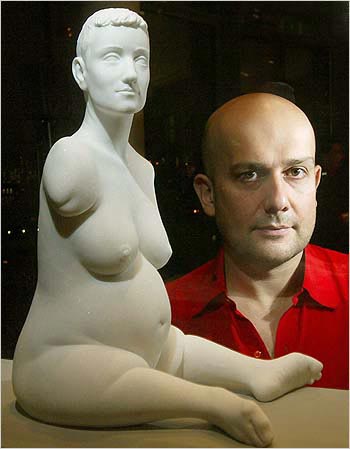
Realising that upwards of 100,000 of the estimated 165,000 victims of the Tsunami disaster were Muslims, the US wasted no time in sending US Secretary of State Colin Powell to the scene of the devastation. There was much to gain from this mission at a time when the US has been accused of an anti-Muslim crusade in the wake of the devastation it has wrought on Afghanistan and Iraq.
Powell was keen to show the world’s 1.2 billion Muslims that the Bush administration is not islamophobic, even if its military machine did seem to have a penchant for the slaughter of Muslims. He said “We’d be doing it [participating in the relief effort] regardless of religion, but I think it does give the Muslim world and the rest of the world an opportunity to see American generosity, American values in action.”
As for the US “values” Powell’s mission aimed to promote we need only mention Abu Ghraib and Guantanamo Bay for starters before moving on to the myriad international treaties, on gun control, nuclear proliferation, the environment, human rights etc. that the Bush administration has flicked the proverbial V’s to since 2000.
While Powell bangs on about US aid, it is worth remembering that 40 per cent of US aid goes to Israel, a US military ally, a country in breach of numerous UN resolutions, and given in contravention of a Congress ruling that no foreign aid goes to a nuclear power.
US “values” have prompted successive White House administrations to support dictators and tyrannical regimes on every continent, from Pol Pot and Suharto to Saddam Hussein and Papa Doc Duvaliere. Between 1945 and 1999, this same defender of the global well-being toppled 40 governments and helped crush 30 populist movements, assassinated scores of prominent individuals and perverted elections in every corner of the globe. During this same period the US has armed terrorists, trained right-wing guerrilla movements in the art of torture and financed armies intent on overthrowing democratically elected governments. Some values!
When asked on US television whether the death of 500,000 Iraqi children as a consequence of Western sanctions was acceptable, Madeleine Albright, Powell’s predecessor under President Clinton, replied: “I think this is a very hard choice, but the price - we think the price is worth it.”
It seems there are American “values” and “values”. Those Powell is charged with furthering are those of a corrupt elite operating in the interests of corporate America. He was certainly not sent to Indonesia on a show of hands of the US public. His attempt to seek political capital out of present US offers of help to the disaster region is thus opportunistic and utterly despicable, nay, nauseating.
Powell further commented in Indonesia: "I've been in war and I've been through a number of hurricanes, tornadoes and other relief operations, but I've never seen anything like this." This from the man who rose to prominence trying to cover up the My Lai massacre in Vietnam, when US forces slaughtered 500 Vietnamese women and children in the village of My Lai; part of a larger conflict that left 2 million dead, many from the use of napalm and agent orange! We can only assume that Powell is suffering from selective amnesia.
He added: “I cannot imagine the horror that went through the families and all of the people who heard this noise coming and then had their lives snuffed out by this wave.” Neither, it would seem, could he imagine the horror of the thousands trapped in Fallujah as US planes bombed it, napalmed it and American artillery shelled it from every angle, raising that city – once with a population 300,000 – to the ground. And we can only assume that Powell was oblivious to the fact that the 100,000 dead of Indonesia is matched by the 100,000 Iraqis killed since the US invasion of Iraq.
While he feels a surge of pride in the knowledge the US government has promised $350 million to the stricken areas, what is to be made of the fact that this is only a minute fraction of the amount spent on the US invasion and occupation of Iraq? Or, to put it another way, the world is meant to applaud the Bush administration for paying out $350 million in one hand to save Asia’s Moslems, while forking out $150 billion (http://costofwar.com/) with the other to kill their counterparts in the Middle East.
If you consider that we err in comparing the war in Iraq with the rescue mission in the Indian Ocean, then remember the reason for the invasion of Iraq. Bush and Blair both claimed that this was a humanitarian intervention, a rescue mission, aimed at restoring democracy and freeing the Iraqi people from years of oppression. On this count it stands as the most expensive humanitarian mission in history, considering the size of the Iraqi population, and what does this make of the people who opposed that invasion, the 35 million across the world who marched and protested at the Bush/Blair rescue mission to Iraq in February of 2003?
When Jan Egeland, the UN emergency relief co-ordinator, criticised the initial US offer of $15 million in aid as “stingy”, Bush’s response was to claim Egeland was “very misguided and ill-informed”. Bush later had the figure raised to $35 million, with this figure later increased ten fold – a figure, incidentally now dwarfed by private donations in the US. All Egeland was saying was that in times of disaster Western governments do in fact appear parsimonious. Clearly Egeland was thinking of statistics compiled by the Paris-based Organization for Economic Cooperation and Development which reveal the amount of a country’s GDP given in overseas aid. Of the wealthiest countries in the world, none give more than 1% of their GDP in foreign development aid. Egeland was also aware that his own Norway had the best showing at 0.92% and that down at the bottom were the US of A with its "stingy" 0.14%.
Many radical commentators backed Egeland’s “stingy” claim, pointing out that the Bush administration would be spending far more on the president’s inaugural celebration on January 20th and how the Republican Convention in New York last year cost a staggering $166 million (inclusive of $70,000 for donuts and coffee for the press). We can perhaps better set the US aid promise in context by considering that the occupation of Iraq is costing the US an estimated $270 million per day, and that the Pentagon’s military budget is $1.5 billion per day – this spent with a view to killing people, not saving them. What else are guns and bombs, tanks and warships for? One F22 Raptor fighter costs $225 million. It does not carry food parcels and medicines but surface to air missiles and cannons. According to the US-based International Action Centre’s estimates, "for what the US is spending for less than one second of bombing and destruction, it could construct a system that could have prevented thousands of needless deaths [caused by the Tsunami]."
As in Britain, so to in the US have the general public humiliated their governments with their generosity. If we accept that the invasion of Iraq was a humanitarian step, that Bush and Blair were motivated solely by the plight of the suffering Iraqi people under Saddam, why did they not set up a charity and see how much the public would have donated to this mother of all rescue missions? Simple, because they realise that people, though often conned at election time, are just not that stupid, and that they couldn’t have collected enough to feed a regiment’s mascot goat.
The generosity shown towards the victims of the Tsunami disaster are not Bush administration “values”, which Powell seems to have been inferring in his damage limitation exercise in Indonesia, but rather the basic values of human beings in America, indeed, the world over. Unlike other animals, humans are endowed with the ability to sympathise and empathise with their fellow humans. Humans derive great pleasure from doing good, are at their best when faced with the worst and will go to extraordinary lengths to help alleviate the suffering of others. Across the US, as in other countries, there have been all manner of fundraising events, in all sections of society, inclusive of nursery schools, prisons, universities and impoverished communities. In some instances people have queued for over an hour to put money in a plastic collection bucket.
According to a survey by Independent Sector a US coalition of non-profit organisations, the percentage of volunteers in America is the largest of any country, almost 56%. The average hours volunteered per week by an individual is 3.5 hours. According to Charity America, donations to charity for 2002 were $241 billion, 76.3 per cent of this given by individuals.
If governments depended for their existence on us promoting our real values, they wouldn’t last a week. That is why they spend so much time trying to divide us as a class, lying to us, instilling in us false needs, a false consciousness, appealing to patriotism and the rest of the rot. When it comes to values, there are only class values, ours and theirs. That Powell had to go to Indonesia to try to hijack any US initiated relief effort, before it was credited to the workers of the US, shows perhaps that they fear not only class solidarity across the world but the very values that have come to the surface in recent weeks.



